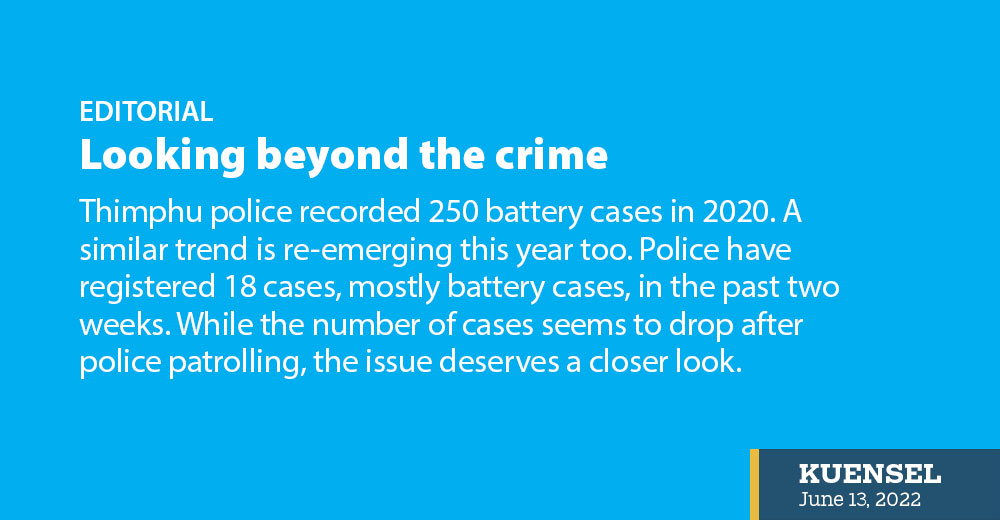Thimphu police recorded 250 battery cases in 2020. A similar trend is re-emerging this year too. Police have registered 18 cases, mostly battery cases, in the past two weeks. While the number of cases seems to drop after police patrolling, the issue deserves a closer look.
Most of those involved in battery cases were young people, mostly out-of-school youth, unemployed or illiterate. They were either drunk or had abused drugs. The patrolling part is a preventive measure, not the cure.
Not long ago, every child who was admitted to school would aspire to eventually be a Dasho. Today, the average child worries about employment. Some face the risk of social dislocation. We fear that the young generation lacks a sense of belonging… the vital sense of nationalism.
Man’s short memory has, indeed, made it necessary for us to constantly remind ourselves of important issues. Therefore, the recurrence of such issues reminds us of our priorities and problems: to focus on them, to be aware of their existence, and to respond to them.
Government officials, especially those in the health and education sectors, will tell us how lucky Bhutanese children are today. And, with the government giving high priority to these sectors, they do so with good reason.
Bhutan enjoys an environment conducive to making life more meaningful in many ways, so we could start, for example, by asking ourselves some relevant questions.
Our curriculums are designed to make students globally competent. But does the delivery goes beyond the goal of high scores in the exams? We hear of value education but do we even understand the concept?
The country has set itself a noble but difficult target by offering education as a right to the younger generation. But it is a goal that can only be achieved with the involvement of civil society. And, as concerned parents and citizens, we have no choice but to be involved in the education of our children at home and in school, every day of their lives.
As we try to evolve a new culture through the rapidly changing social system, Bhutanese society itself has to take a new step in the education and development of children. In the past, children were brought up by parents and the community. With the process of planned development, the government took on the responsibility of educating the youth. Now it is critical that parents, and society, share this responsibility.
The task cannot be left to the police and the schools alone. We know that. The question is how far are we willing to go to help our children and ourselves.


